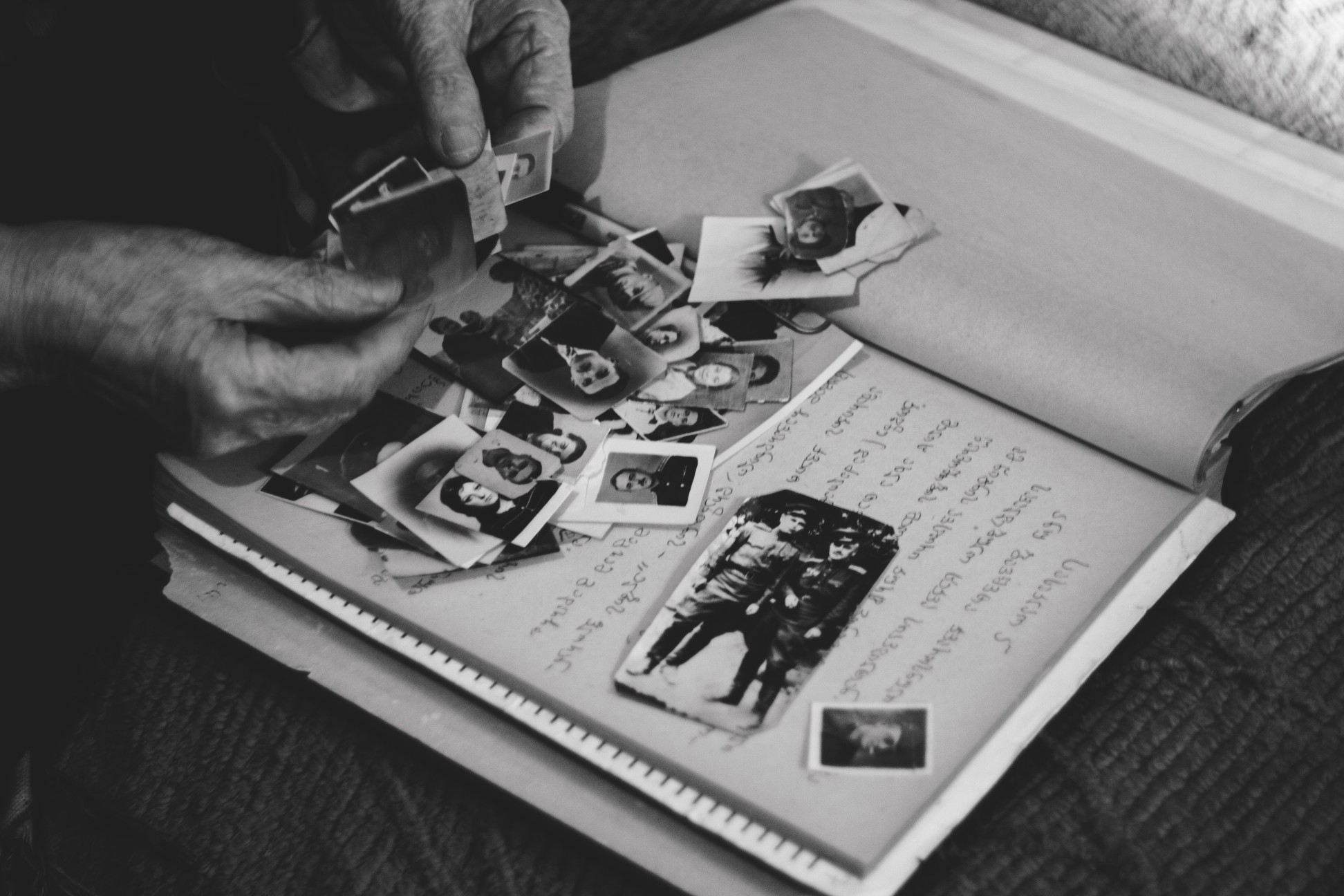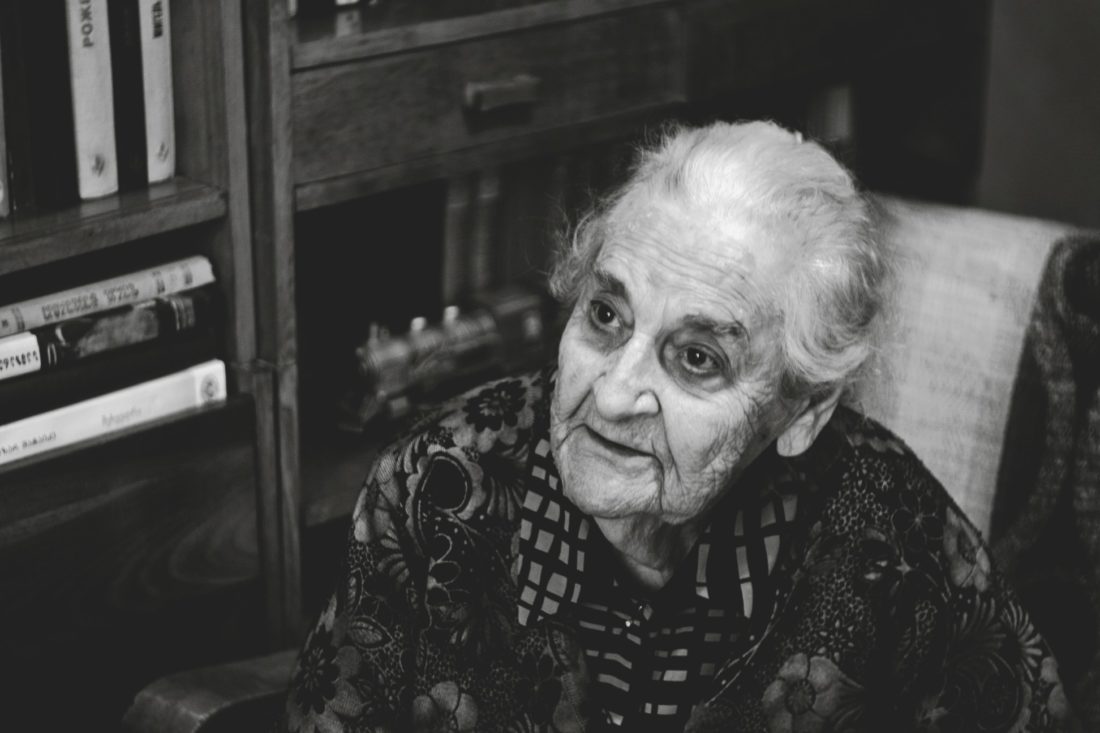Iskra Osvald, 93, Tbilisi
„War! Even the sound of this word is terrible and imagine surviving the actual war. It was June 22 of 1941. I was a 10th grade pupil. In the yard where I lived, a radio was installed on a tree, broadcasting news. That morning they announced that the Nazi Germany had invaded our borders and the war had started. The same day, massive mobilization was declared. The boys in our class, who were already 17, the age of joining the army, were immediately trained for the front. Some of them we never saw again. They lost their lives during the war.
The girls remained in the city and went on with our lives. The school we went to, Tbilisi Experimental Demonstration School (currently, school N23) was used as a military hospital. We were moved to another school as there were too many children studying in one building and there was not enough room. The learning process was divided in shifts. Our class was in the third shift which meant that our lessons started at 5-6 p.m. and ended at 10-11 p.m. At that point, the lights were turned off to avoid being targeted by the enemy’s air forces. No building shed any light in the settled areas. We had to have classes under the light of a kerosene lamp. Sometimes we did not even have kerosene and just sat in the darkness, discussed the horrors of the war and then returned home. Bread was rationed and could only be bought with coupons. It was never enough. Our teacher used to bring bread to school and give one of the pupils: one day, I would get the loaf, the following day, another classmate, and so on.
Still, we were young and hopeful. You would often hear us say: “When the war is over…” We would start daydreaming with these words.
Our usual morning started by going to the hospital were injured soldiers were treated. Our responsibility was to wash bandages, give them food and tell them interesting stories to raise their spirits. We also helped the soldiers write letters, some of them sent a word to the mother, some – to the wife, and some – to the girlfriend. We tried to make the letters lighter and not to tell the actual conditions the soldiers were in. Some of them were badly wounded but we still composed hopeful letters and sent them to their families. Sometimes you need to lie…
Women went to the front too. By the way, the soldiers were often followed by their wives who fought with them, some worked as a nurse, some – as a doctor and some actually fought in the battles. There is not much information available about them; we heard those stories by word of mouth.
 After finishing the school, I enrolled in the department of the Russian Language and Literature. Students at our university included refugees from various countries including Poland, as the Nazi Germany was severely attacking Poland and the people were forced to escape to other countries so that they did not die in the Nazi death camps. These people were sent to shelters by ships, some of which were bombed and never reached the destination. One of such ships was full of children, some of them Jewish. This ship arrived in Georgia. We, the students, met the refugees and I took Polish sisters Carmen and Clara home. Their parents had been bankers in Poland. The bank was bombed during the very first attack, killing their parents. Clara and Carmen narrowly escaped a concentration camp and fled to Georgia.
After finishing the school, I enrolled in the department of the Russian Language and Literature. Students at our university included refugees from various countries including Poland, as the Nazi Germany was severely attacking Poland and the people were forced to escape to other countries so that they did not die in the Nazi death camps. These people were sent to shelters by ships, some of which were bombed and never reached the destination. One of such ships was full of children, some of them Jewish. This ship arrived in Georgia. We, the students, met the refugees and I took Polish sisters Carmen and Clara home. Their parents had been bankers in Poland. The bank was bombed during the very first attack, killing their parents. Clara and Carmen narrowly escaped a concentration camp and fled to Georgia.
During the war, all of us had to live in hardship. Our professors stood in the open air markets at the weekend, in the area of the current Sports Palace, selling the stuff they had taken out from home to earn some food money. In the third year of the war, US started providing humanitarian aid. Sugar was distributed in the sacks of such high quality material that we made clothes of them.
In my student years, notebooks were hard to get, so we had to memorize the lectures of our professors. A friend of ours worked in a tin can factory, another friend – in a lemonade factory, they used labels to stick to the cans and the bottles. They would bring these labels to the university and we could use them as notebooks – make notes on the back of the labels.
Once the war was over, no words can describe how much we rejoiced. People were out in the streets, crying, laughing, and hugging each other.
I am 92 now. In a month, I will turn 93. I have written down my memories in detail. Besides, I read at least one new book every week and write a short brief and review of it in my notebook. I have a catalogue so that young people can learn about the new books and if they are interested, read them. I like books about the war; it is especially interesting to see how the war is seen in hindsight, from the modern perspective, after the mistakes are analyzed. But I have no idea why it happens that the world still makes the same mistakes and the wars return with all of their atrocities…”

